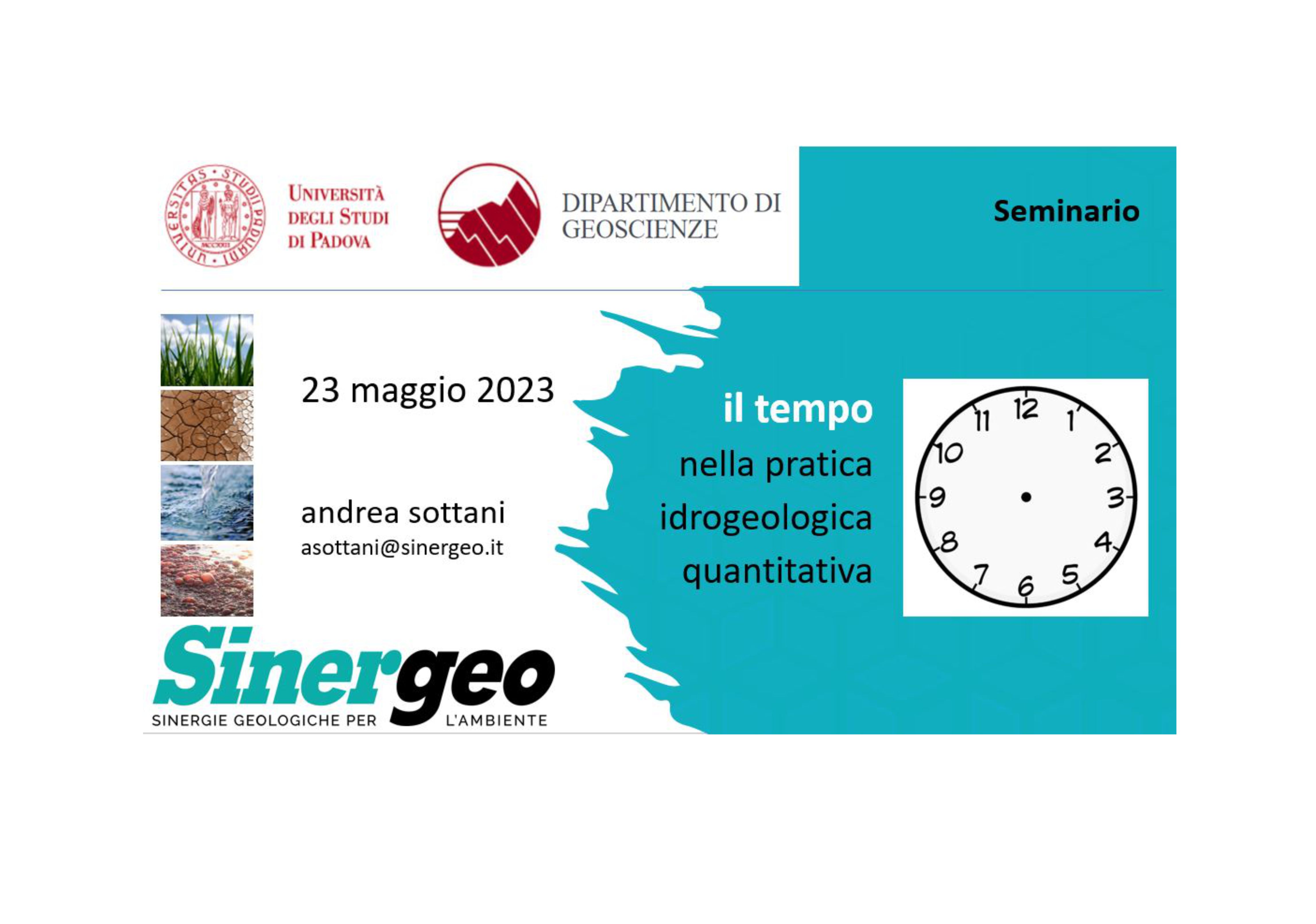The meaning of time in quantitative hydrogeological practice
Sinergeo engages with Geoscience students at the University of Padua
 24-05-2023
24-05-2023
Over last decades, the international hydrogeological community has made significant efforts to understand the spatial variability of sub-surface's parameters and disseminate their meaning. The mechanisms of the hydrological cycle are rapidly effected by the many ongoing changes happening at the global scale, suggesting the opportunity to renew the interest on the intimate time dependence of geohydrological phenomena.
Starting with a brief overview of the diagnostic tools currently available to hydrogeologists, and considering past operational methodologies as well as present-day technologies, the discussion revolved around the meaning, the role, and the value of time in professional practice, aiming towards the occupational scenarios that this sector concretely offers in the job market.
The illustration of some case studies, drawn from recent or ongoing consulting assignments, braced the lecture. The examples are centred on real cases related to the flow of groundwater and the transport of contaminants in saturated porous media
Within the specific context under consideration, time governs the development of the investigation protocol, as well as the occurrence of experimental events. This assumption lead to parallels between studies on water research for public water supply purposes and the methodological development of aquifer remediation, going through plume's control systems and in situ enhanced bioremediation interventions.


